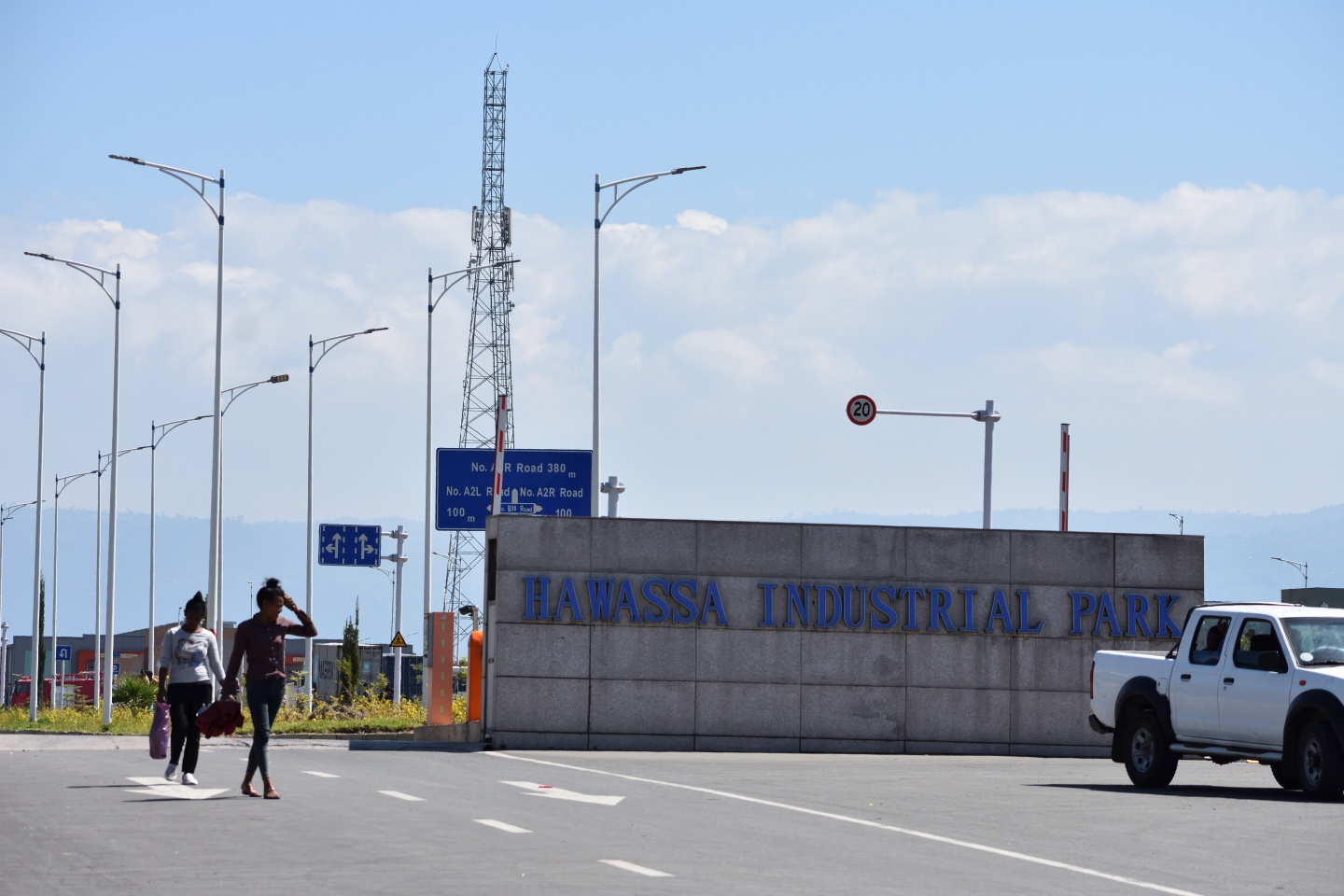3 December, 2019Located in the Sidama Region, Hawassa Industrial Park is the largest in Ethiopia with potential to employ over 60,000 workers, in line with government policies to create decent jobs for millions of the unemployed. The park currently employs about 25,000.
The industrial parks' strategy is meant to transform rural towns into industrial manufacturing zones.
However, an interview with workers from the park on 28 November confirm that they do not belong to trade unions but working conditions are rather negotiated through employers/workers committees formed by the factory owners.
The committees discuss wages, working conditions, skills training, health and safety, transport for workers and disciplinary issues.
Wages for the garment workers remain low, especially for sewing machine operators whose basic salary is 750 Ethiopian Birr. In addition, the workers are paid 300 Birr for accommodation and a further 100 Birr for reporting for work.
The total, 1,150 Birr, equals around US$38. Yet a room in Hawassa costs about 2,000 Birr. To make ends meet in some instances four workers share a single room.
During a factory visit by IndustriALL Global Union, workers said the shirts they were making would sell in the US for about US$70, which is substantially more that their monthly wages. The factory makes 3,500-3,750 shirts per 8-hour shift and employs 450 workers.
Worsening matters is the irregular pay day; sometimes wages are paid 11 days late. Although production bonuses sometimes bring relief, workers say it is not every week there is a production bonus. They need to earn better wages.
At some factories the lunch break is only 30 minutes. Some factories provide food at canteens, while others do not. With the low wages, workers who do not have lunch provided can sometines go without food until the end of the shift and will only eat when they get home.
IndustriALL director for the textile and garment sector Christina Hajagos-Clausen says:
“We are supporting our affiliate in Ethiopia, the Industrial Federation of Garment Leather Textile Workers Union, in their efforts to unionize workers at Hawassa.
“As a collective the workers can demand minimum living wages and better working conditions. Without representation by a strong union the workers will continue to work under terrible conditions. We will also discuss with international brands sourcing from Hawassa to respect workers’ rights and pay living wages.”
Leading American brand PVH has a factory at the park and is one of several brands that are sourcing garments from Hawassa.
Mondiaal FNV is working with the IFTLGWU on organizing workers in the Hawassa Industrial Park and also supporting research on minimum and living wages in Ethiopia.


